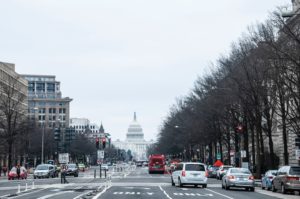
To view a printable PDF and the full list of signees, click here.
March 22, 2021
The Honorable Janet Yellen
Secretary
U.S. Department of Treasury
1500 Pennsylvania Avenue N.W.
Washington, D.C. 20220
Dear Secretary Yellen,
On March 11, President Biden signed into law the American Rescue Plan Act of 2021 (Act), which authorizes $1.9 trillion in new federal funding. The undersigned organizations are state and national think tanks whose research and educational work, among other things, advances free-market public policy in each of our respective states.
Many of the organizations signed on this letter expressed concerns about the significant amount of COVID-related federal aid already distributed to state and local governments. This next round of funds in the Act far exceeds state revenue shortfalls and new costs incurred due to the pandemic. Too many top-down restrictions on states will prevent them from using the funds in a way that is best for their citizens and unique budgetary needs.
The Act charges the Department of the Treasury with interpreting and implementing many provisions of this new comprehensive spending law, including Section 9901 “Coronavirus State and Local Fiscal Recovery Funds.” We are concerned that the broad statutory language could be implemented in such a way as to unconstitutionally tie the hands of state governments in their work, creating and implementing the tax and spending plans for their sovereign states.
Section 9901 amends the Title VI Social Security Act to provide the states and local governments with roughly $280 billion for various COVID-related costs and “necessary investments in water, sewer, or broadband infrastructure” incurred by the state by December 31, 2024. However, states accepting such funds are subject to the following restriction set forth in new Section 602 (c)(2), which reads as follows:
(A) IN GENERAL – A State or territory shall not use the funds provided under this section or transferred pursuant to section 603(c)(4) to either directly or indirectly offset a reduction in the net tax revenue of such State or territory resulting from a change in law, regulation, or administrative interpretation during the covered period that reduces any tax (by providing for a reduction in a rate, a rebate, a deduction, a credit, or otherwise) or delays the imposition of any tax or tax increase.
Article I of the U.S. Constitution gives Congress broad authority to raise taxes and spend monies for the general welfare. However, that broad authority must be read considering our federalist system of government, which reserves all other powers to the states and the people.
In NFIB v. Sebelius (567 U.S. 519) (June 28, 2012) the Supreme Court clarified the limits on the conditions Congress could impose on states accepting federal funds. Justice Roberts explained that the Court has a long history of viewing spending clause legislation as a contract in which the state “voluntarily and knowingly accepts the terms.” According to Chief Justice John Roberts, “[r]especting this limitation is critical to ensuring that Spending Clause legislation does not undermine the status of the States as independent sovereigns in our federal system.”
We are concerned that, if broadly implemented, the Act will in fact undermine state sovereignty by handing over to the federal government the states’ sovereign right to create state budgets, tax structures, and taxation levels that are accountable to their citizens.
With that as background, as your department implements Section 602(c)(2), we respectfully request you ensure that states have the clarity and freedom they need to decide whether to accept the funds allocated to the states in Section 602 without, as Chief Justice Roberts wrote, the proverbial “gun to the head” that rendered the funding contingent on Medicaid expansion in the Patient Protection and Affordable Care Act unconstitutional.
Given the fact that money is fungible, beyond a dollar-for-dollar calculation (i.e., State X receives $20 billion from the federal government and reduces taxes by $20 billion) how will the federal government apply its “test” of whether or not a state has changed its tax laws “directly or indirectly” because of monies received from the Act?
How long will the prohibition on tax reductions in the several states be imposed by the federal government? The Act allows for funds to the states to be used through December 31, 2024. This year, two states will elect governors and state legislators. In 2022, 36 states will elect governors, and most will have state legislative elections. Will newly elected officials be precluded from implementing an agenda that includes tax cuts? Does this impact automatic tax cut triggers enacted in states? Additional states are already in the midst of considering tax reductions or expansions to tax credits—considerations that though not yet enacted were developed and considered before Congress appropriated aid money to the states.
States should have freedom to make their own tax policy in accordance with the preferences and needs of their citizens. Our federalist system is founded on the fact that each citizen lives under two governments, not one. As Chief Justice Roberts noted in NFIB v. Sebelius, although it might seem “counterintuitive,” this two-government system enhances individual freedoms.
Thank you for your consideration of these comments. Please do not hesitate to contact any of our organizations if we can be of assistance to you.